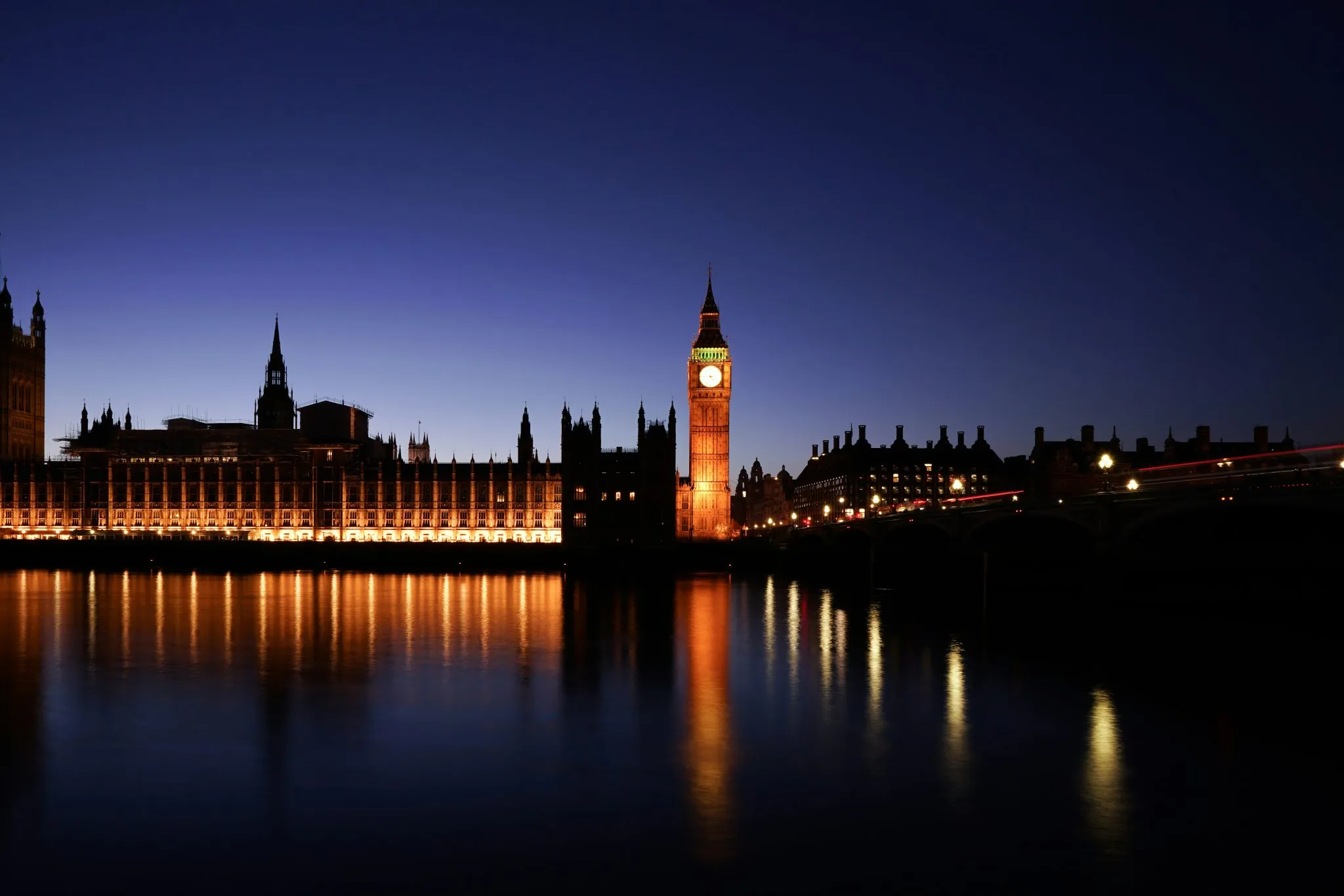Chances of Getting UK Visa After Refusal
Having a UK visa rejection is not because the United Kingdom’s immigration officials do not want you to visit or live in the country. It might be due to disregarding the existing rules and requirements for applying for a UK visa or something else.
In any case, after the application has been rejected by the Home Office, you need the support of immigration lawyers in order to give yourself the best possible chance of success with any action that may follow. For more information about UK visa applications, UK visa rejection and what you need to do, how to prepare an appeal, immigration rules, and expert advice, reach out to us today on +44 (0)333 414 9244 or contact us online.
Read our 1001 reviews
If my UK visa is rejected can I apply again?
Yes, you can apply again if your UK visa is rejected. UK visa refusal to enter the United Kingdom does not prohibit you from entering the country permanently. Carefully reading the refusal letter from the Home Office will reveal the cause for your visa refusal.
When an application is denied you will receive a letter or email detailing the reasons why your application was denied. If your passport was retained in your visa application, it will be returned. Your UK visa refusal letter will specify whether you are entitled to either an administrative review or an immigration decision appeal.
If you have made an error that can be corrected, please submit a revised UK visa application. However, remember that you will be required to pay the visa fee again.
However, if you have provided fraudulent information about yourself or deceived the authorities in any other way, you will be prohibited from accessing the United Kingdom for ten years. This measure is only applicable under exceptional conditions.
Understanding the Reasons for Your Visa Refusal
There are several common reasons for refusal:
- Applying for a wrong visa that contradicts your planned activities in the United Kingdom
An apparent and extremely prevalent cause for denying a UK visa. It is common to encounter such difficulties when applying through an unprofessional agency. For instance, if you need private medical treatment in the United Kingdom, it would be an error to register for a standard visitor visa. An agency’s employee may be unaware of the distinction, resulting in a visa refusal. - Lack of adequate evidence for the provided information
Applicants frequently neglect that every claim must be supported by evidence. If not, a case worker will assume the information is false or misrepresented. You must know what to include in your visa application like supporting documents and how to include it. Be prepared to provide evidence for your claims if you make a number of statements. When you need to select the correct visa category type, professional advice and assistance are as invaluable as ever. - Insufficient funds to support yourself
There are numerous legal and illegal migrants seeking better opportunities in the United Kingdom, and the Home Office must remain cautious. The UK immigration authorities must confirm that you earn sufficient funds in your home country; for example, for a visit visa that is enough to purchase a round-trip ticket, accommodations, and support yourself during your trip. Therefore, a low salary, a new job (less than six months old), and a low savings account balance are red flags for them. - Not mentioning a family in the United Kingdom; giving contradictory information; exaggerating durations of stay in the country.
A case manager will not only review the specifics of your application but also evaluate it as a whole. If they believe that you have provided deceptive or false information, they’ll double-check every questionable detail and make a refusal letter as soon as they discover anything suspicious. - Failure of your sponsor to provide monetary support
If you want to join your British spouse, for instance, and apply for a family visa, your British spouse will be your sponsor, and they will need to satisfy the standards set down by the Home Office as well. The immigration rules set a minimum amount of yearly income that a British husband or wife must make in order to be eligible to sponsor their overseas spouse; it is currently set at £29,000 and cannot be lower than that amount.
If your UK visa has been refused, you have several options for resolving the situation. The date on a postage stamp indicates the amount of time you have to take action and possibly alter the decision. In addition, the refusal letter includes the reason you were denied, which may be more than one.
We can help you avoid a UK visa refusal. Call us on +44 (0)333 414 9244 or contact us online.
Other Potential Reasons for Refusal and How to Address Them
There are less common but still possible reasons for UK visa rejection reasons:
- If you have provided false information, as previously stated, you will be prohibited from accessing Ireland, Northern Ireland, Scotland, England and Wales for ten years.
- To qualify as a persona non grata in the United Kingdom, it is not necessary to be family ties by blood or to be issued a Red Notice. It is sufficient to join a political or religious organisation that some countries consider to support terrorism, and you may not even be aware of this. Alternatively, you may have supported an extremist online.
- The person applying has a criminal record or a history of immigration law violations: The United Kingdom has strict entry requirements. UK visa applicants with a criminal record or past convictions of immigration violations may be denied a visa.
- The applicant was previously denied a British visa. In order to be authorised for a visa in the future, applicants who have previously been denied a UK visa may be required to clear additional obstacles.
After addressing all of the aforementioned reasons for denial, you must verify that there are no additional grounds for denial. Each refusal is intended to include all the reasons why visa applications were denied, but conditions (or the Rules) might have changed since the last visa refusal, and a different Entry Clearance Office may come up with additional reasons for refusal.

Tips for Presenting New Evidence Clearly and Effectively
The initial step is to ensure that each requirement of the Rules has been met and that the evidence provided is sufficient. For each visa, that differs – with a visitor visa, for example, there’s Appendix V. Even though Appendix V does not contain “specified evidence” requirements, it is often useful to review other sections of the Rules that do in order to determine the type of evidence to provide.
Often, two or three different kinds of evidence are required for proving a single fact. The various sources of evidence should support one another.
It is also necessary to review the Home Office’s “Visit Guidance” because the Entry Clearance Officer is going to refer to this document. The Guidance clarifies the requirements of the Rules. For instance, the Guidance outlines a number of factors that the Entry Clearance Officer will consider when determining whether a candidate is a genuine visitor.
Once you have collected all of the evidence and supporting documents you want to submit, you must consider whether anything needs to be clarified in the administrative review. Keep in mind that although the Entry Clearance Officer has the authority to interview any applicant, clarification requests are extremely rare. If the documents are unclear or contain information that could reflect negatively on the visa application, it is best to provide an explanation and, if possible, additional evidence. You can organise the evidence by creating a table of contents or using clear headings and labels.

Administrative Review, New Application, and Appeal: What Are Your Options after a UK Visa Refusal?
There are three options after a UK Visa Refusal:
Administrative reviews
You can request an administrative review if you believe that your UK visa application and the submitted documents were incorrectly processed or evaluated by a caseworker, resulting in the denial of your application. However, keep in mind that you can only refer to previously submitted documents and cannot submit additional ones.

A new application request for a UK visa
If you and/or your immigration attorney determine that a case worker’s decision was correct and that you made an error or failed to submit the required documents, the best course of action is to do your research and reapply.
The same holds true if the circumstances that prevented you from obtaining a visa have changed, and you now have a greater chance of obtaining it.
UK Visa Refusal Appeal
You have the opportunity to file an appeal against the decision if a visa expert who is helping you with your application finds mistakes that were made by a caseworker that played a part in the rejection of your application.
A Home Office decision may also be appealed if it violates British laws, interracial relationships, immigration policies, human rights, and international agreements (such as the European Convention on Human Rights).
When can I apply again if my UK visa is rejected?
There is no time restriction for reapplying for a UK visa following a refusal. If your UK visa is rejected, you can usually apply again immediately, unless your refusal letter states otherwise.
Before reapplying for UK visa, it is generally advisable to address the reasons for the rejection and submit a more compelling application. This will increase your chances of success and could save you time and money.
When you are considering reapplying for a UK visa, you should also gather any additional evidence or supporting documents that can help your case, such as proof of your financial situation or bank statement, proof of your connections to your native country, and travel itinerary information.
If you do not do that, the chances of a refusal again are high. Also, understand that the more refusals you get, the higher the likelihood of you getting a refusal.

UK Immigration Appeal Process
Throughout the visa application preparation process, you should bear in mind that a right of UK visa refusal appeal is extremely rare if your application is denied. If you need to contest a refusal, you will likely have to do so through judicial review.
It is not possible to introduce new evidence or explanations during a judicial review. Therefore, it is essential that all pertinent evidence be included with the visa application.
To succeed in a judicial review, you will likely need to demonstrate that the Entry Clearance Officer’s decision was irrational. This is a very rigorous requirement. It is not sufficient for the judge to believe that the Entry Clearance Officer should have reached a different conclusion. Therefore, it is crucial that you prove in your application that there are no valid grounds for denial, as every rule requirement has been satisfied.
If you have received a notice of refusal and are confused about what to do next, you might want to talk with an immigration attorney or a qualified immigration lawyer such as IAS. We can evaluate your case and offer advice on how to increase your prospects of obtaining a visa in the future. Call us on+44 (0)333 414 9244.
How IAS Can Help
If you submitted a UK visa application and received a notice of UK visa refusal, you may feel discouraged and unsure of your next steps. In order to increase your possibilities of success with a future visa application, it is essential to meticulously review the refusal notice and comprehend the reasons for the denial.
Regardless of the form of UK visa for which you are applying, if you do not intend to confuse the Home Office and do not make any errors in your application or supporting documents, the entire process should go very smoothly. Even if you get a UK visa rejection, errors can be rectified, and unfair decisions can be appealed.
Both during the visa application process and after a UK visa refusals, you may require the services of an immigration lawyer. Professional advisors at Immigration Advice Service will advise you on any matter pertaining to a denial, assist you in taking the necessary steps to alter the decision in your favour, prepare all necessary documentation, and resolve any issues that arise.
IAS offers a Visa Appeal Package that utilises our attorney’s immense legal knowledge and extensive experience to ensure that you have the best possible opportunity of winning your UK immigration appeal process. We will also represent you thoroughly in any proceedings or trials.
For more information about UK visa application, UK visa refusal, including what you need to do after getting the refusal letter, how to reapply, how is the UK immigration appeal process, and expert advice for your application, reach out to us today on +44 (0)333 414 9244 or contact us online.
Table of Contents
Table of Contents will appear here.Table of Contents
Table of Contents will appear here.Legal Disclaimer
The information provided is for general informational purposes only and does not constitute legal advice. While we make every effort to ensure accuracy, the law may change, and the information may not reflect the most current legal developments. No warranty is given regarding the accuracy or completeness of the information, and we do not accept liability in such cases. We recommend consulting with a qualified lawyer at Immigration Advice Service before making any decisions based on the content provided.
Services we Provide
Frequently Asked Questions
If your request for a visa extension is denied in the United Kingdom, you will be granted 14 calendar days. If you submit a visa application outside of the United Kingdom and are denied, you’re given up to 28 calendar days to appeal.
Please note that visa fees are non-refundable. IHS (Immigration Health Surcharge) is the only fee that may be refunded if paid at the time of application.
The UK embassy typically disposes of visa case files thirteen months after a decision, at the discretion of the Regional Director and based on a risk assessment, if the files cannot be stored securely. There is a severe lack of secure storage space for visa application documents at certain missions.
For visa rejections, the British embassy does not stamp the passport. They will inform you of the reasons for the UK visa refusals.
















